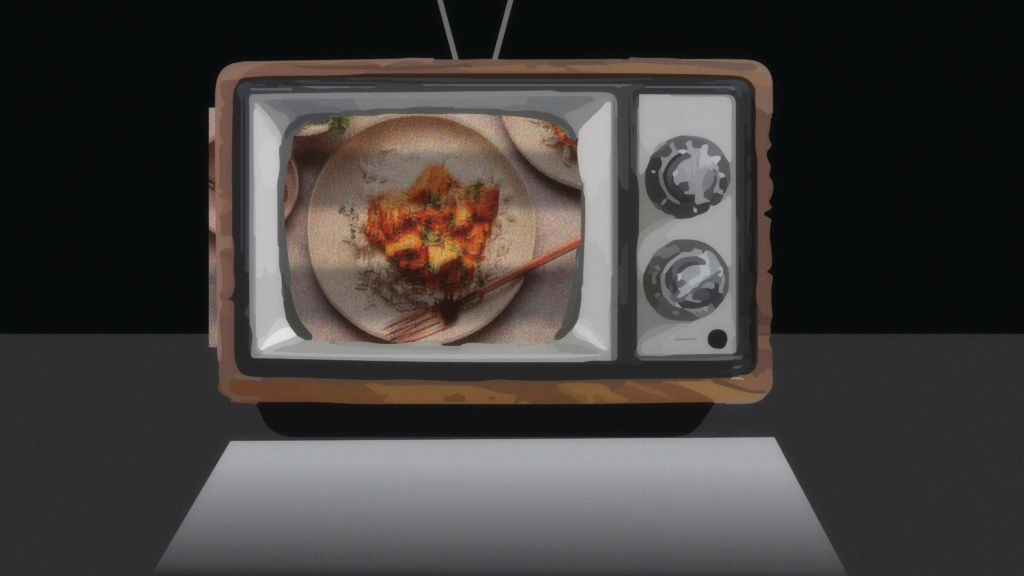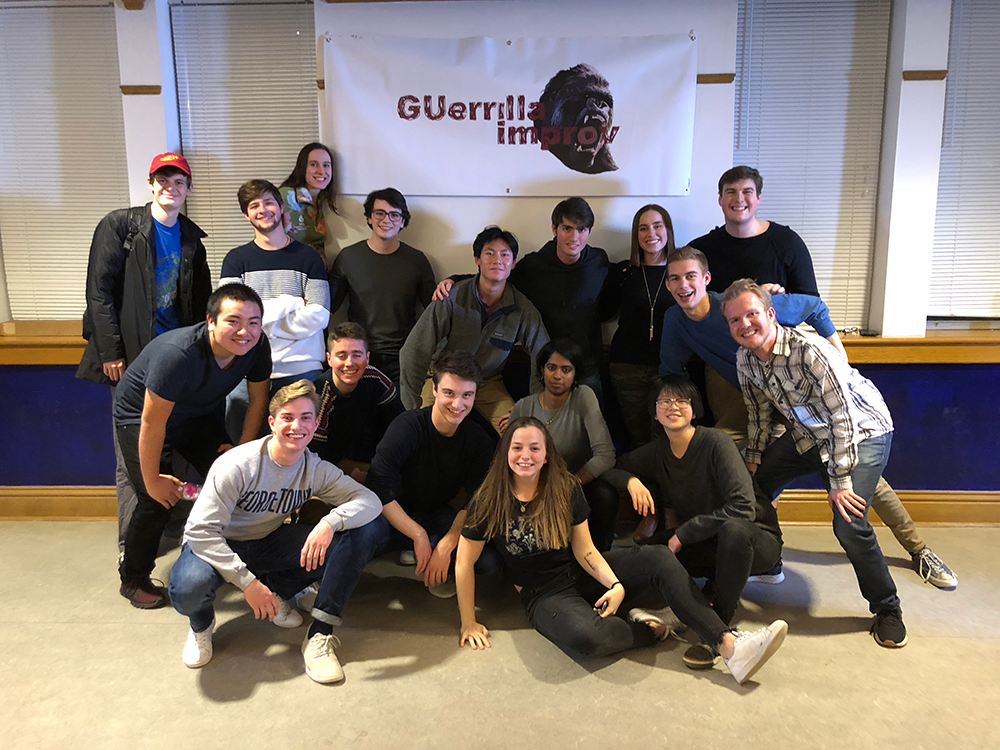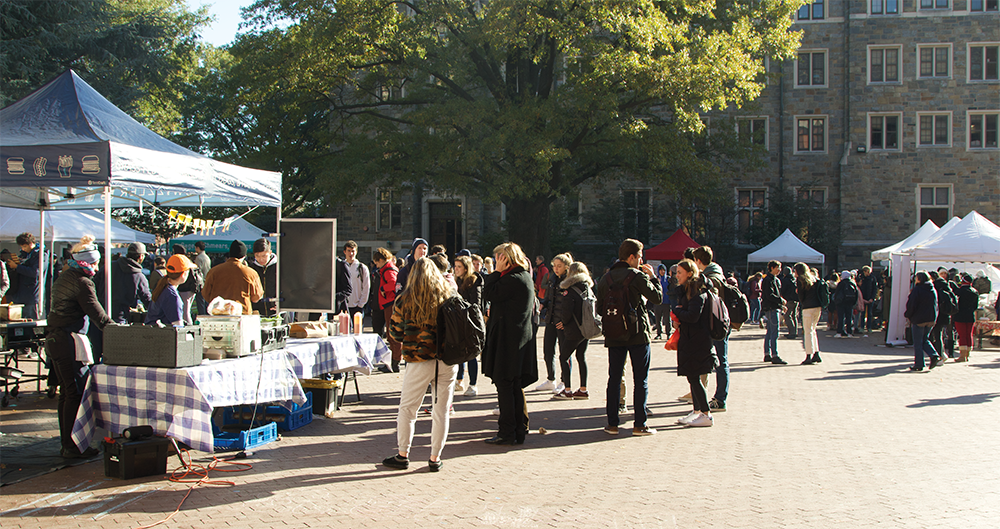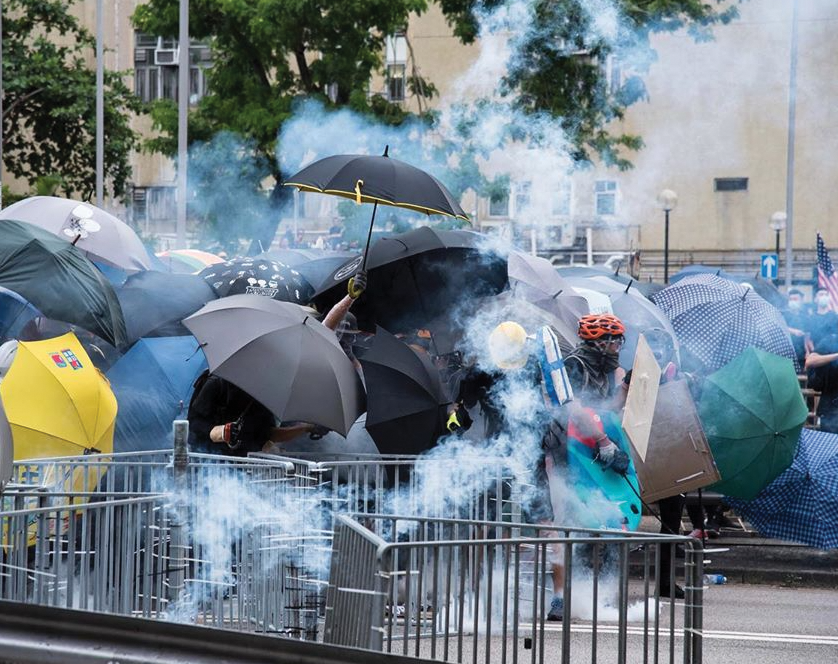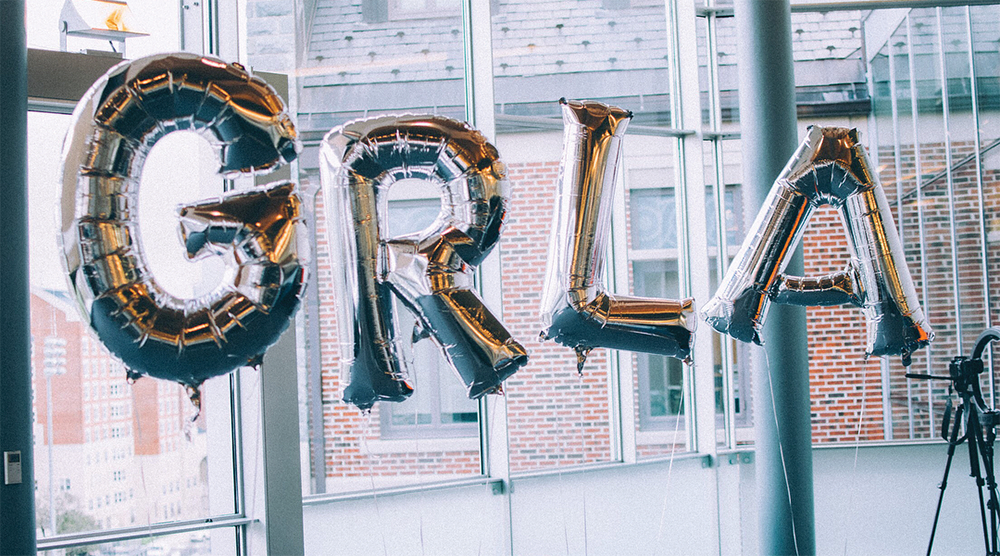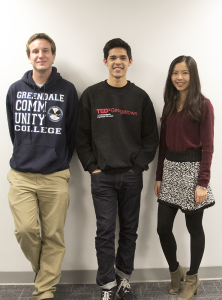
From left: Kevin Carter (SFS ’16), Randy Puno (COL ’16) and chair Cheryl Lau (SFS ’16).
In the rush of Georgetown life, it is easy to get too focused on the destination rather than the experience of the journey. Tomorrow, Georgetown will be hosting a TEDx conference, which is “a platform for ideas worth spreading.” This conference seeks to help students explore other people’s inspirational journeys and then examine their own in the company of their peers. We sat down with three of the event’s organizers, Kevin Carter (SFS ’16), Randy Puno (COL ’16) and chair Cheryl Lau (SFS ’16) to discuss the upcoming conference.
Why the theme Ithaca? And how did you guys choose it?
Lau: The theme came last year after I got appointed as chair and I got my team together. At Georgetown [there] is a lot of talk about being successful. That normally goes down two paths: investment banking and consulting. I’m pretty sure that there are other paths as well, paths that people are passionate about. We are trying to reconcile the idea of having this journey in which you are doing something you like and at the same time you excel so much in it that it turns out to be a pursuit of excellence and achievement as well.
[With] Ithaca, we drew very heavily from two different literary references. The first is Ulysses, in which there is a poem about Ulysses by C.P. Cavafy in which he specifically talks about how Ithaca is a place that Ulysses wants to go, but at the same time it is the journey that counts, because he came back to the shores of Ithaca really rich with his experience. We wanted to draw on people who have this experience, who have this great journey, which might not necessarily be conventional, and use that to resonate with the Georgetown community. The theme progresses from formation, when the journey starts, to trials. That is the hard part, the part that people gloss over. Finally, Coda [is] a reflection of the entire journey and what it has meant to get to this point. After going through these talks, I want people to think about the point they are at in their journey and how they can move forward in a way that defies expectations.
How did you decide on the speakers and what was the process you went through to get the speakers you did?
Carter: Everyone really had a hand in it and everyone had their speakers that they brought. I was in the sociology of hip-hop last year with [Michael Eric] Dyson, and in the class there was a TA named Omékongo Dibinga who is a trilingual rapper, reports for CNN, does motivational speaking, made a campaign called Hope for the Congo, but is also pursuing is doctoral at Harvard, he just does it all. So I reached out to him and was like, “You are Georgetown, can you please speak to TEDx Georgetown,” and he hopped on board. We got a lot of enthusiasm from the speakers that we reached out to.
Lau: We really wanted this conference of ideas to not only be shaped by different people on the team but by different from the SFS, the MSB, and the Georgetown Law Center. It is really about what we feel will resonate with the Georgetown community. We wanted this to be an adventure.
Puno: Regarding the student speakers, I think that was one of the most fulfilling processes we have ever done. We had 35 application responses for originally three spots; we decided we needed four.
Puno: We cut down from 20 and had interviews and snippets of the TED talks they wanted to give. On that day the whole team was there to deliberate on speakers and it was just an absolutely uplifting day to see how many amazing people there are at Georgetown.
What have you enjoyed the most about organizing the conference and what have you learned from the experience?
Carter: I think one of the most rewarding parts is seeing it become more and more distinctly Georgetown more and more as this has gone on. That was one of our missions because there are TEDx conferences all over the country. What makes TEDx Georgetown TEDx Georgetown was one of our big things. We are going to have student speakers and we are going to have themes. We are going to have a Malaysian freedom fighter and then a woman who is battling anorexia talk back to back. I don’t think [these themes] are something you are going to get at a normal TEDx, and that is just something that we tried to really hammer home, that this is our community and this is our conference.
Puno: Just knowing that the event is just going to be one big blob of inspiration is so fulfilling, especially when your job is to get people excited for it. Knowing that we played a part in getting all that inspiration to the students is just very fulfilling.
Is there anything else you would like to add?
Lau: The first session is curated by President DeGioia and I just wanted to stress just how much the president’s office has done for us. President DeGioia teaches this Ignatius seminar. He is very concerned with the development of the person and how people develop at Georgetown, and the speakers he has chosen will really illustrate that.








